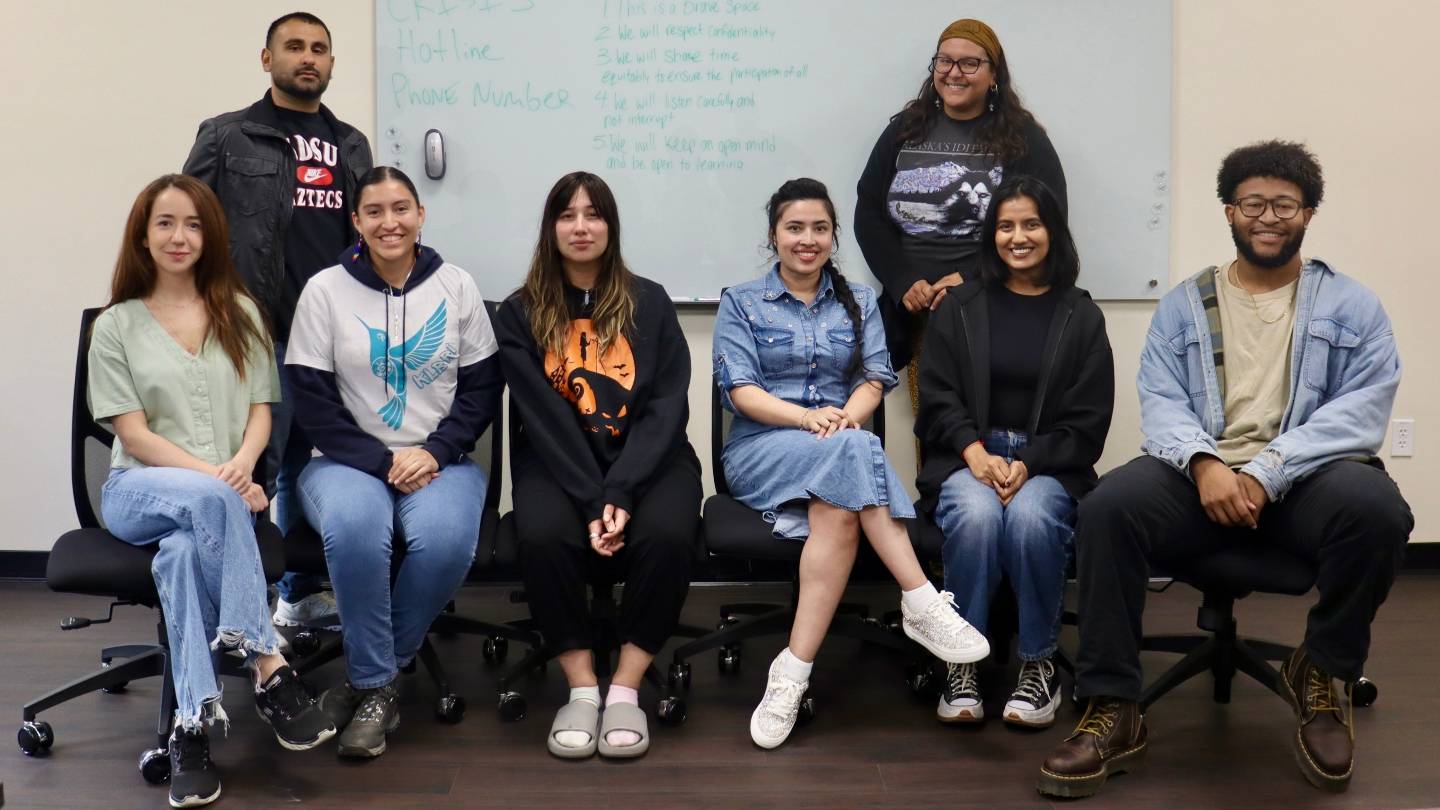‘We put all our hearts on that table’: Grad students support campus wellbeing post-election

As a stressful U.S. election culminated in November, College of Education graduate students stepped up to offer emotional support to all San Diego State University students feeling overwhelmed by anxiety and uncertainty.
From Nov. 6-15, future mental health practitioners studying in COE programs hosted dozens of hourlong on-campus listening sessions by both appointment and walk-in. The 23 student facilitators were compensated for their time and effort thanks to support from The Presidential Global Democracy Fund, an SDSU initiative to foster meaningful dialogue on pressing global and national issues.
The sessions were nonpartisan in nature and not meant as discussions of political ideology. Instead, they were supportive spaces where students could share and work through their thoughts, feelings and fears about the future.
“The Presidential Global Democracy Fund is dedicated to building and nurturing a campus climate and community that welcomes and provides safe spaces for diverse experiences and viewpoints at this critical time in our national dialogue,” said Presidential Global Democracy Fund Chair Mary Taylor, SDSU's Associate Chief Diversity Officer for Outreach and Success. “These post-election emotional support sessions provided by the SDSU College of Education are a shining example of the ways in which we can engage in listening and dialogue that promote understanding, respect and growth.”
Added College of Education Dean Y. Barry Chung: “We have graduate students in our Departments of Counseling and School Psychology and Child and Family Development who have both excellent clinical training and a sincere desire to support those in distress. I am so proud of the way these students have responded to the call."
Empowering and Liberating
Each session was set up as a healing circle co-led by two graduate students. While no SDSU faculty members were present in the rooms, professors did provide orientation and support to the facilitators.
Facilitator Diana Arias, who is studying in the Marriage and Family Therapy (MFT) master’s program, said her sessions were often intimate in size — particularly on the second week of offerings as people came to terms with the outcome — but their impact was large.
"I have to say the sessions were beautiful,” she said. “We put all our hearts on that table in that moment. It wasn't about numbers but about people. Having even one person was very meaningful to me because I could see how they left the session with comfort, where they knew that they had a community and a space to express how they feel.”
Community-Based Block Multicultural Community Counseling and Social Justice Education (CBB) master’s students Ahmad Khoshal and Inna Kakoian each co-facilitated seven sessions. They said student attendees often arrived anxious about participating and even shed some tears during the hour, but people overwhelmingly left the room in better spirits than when they entered.
“Being in a therapy program, of course, I was excited about getting the group facilitation experience, but my first motivation was just being there for my peers," Kakoian said.
"I would say we actually had pretty challenging sessions, but it was very rewarding. Everyone who was there reported feeling better. And that's why we were there — to be there for students who were struggling.”
Added Khoshal: “A lot of people don't have the opportunity to express how they really feel to others, whether within their families or elsewhere. So, for me, the most important thing was just showing up, being present and letting people express themselves in a non-judgmental environment that they may not have otherwise had access to otherwise.”
MFT student Mariana Machaen Morales said most of the participants in the sessions she co-facilitated were women of color and members of the LGBTQIA+ community, which heightened the connection for those involved. She said people came out of the experience feeling “liberated.”
“Some were worried for their families, others were worried for their wellbeing and some even felt betrayed because they have differing opinions,” Machaen Morales said. “But as we talked more — not only as listener-to-student but also student-to-student — we all realized that we have power in our learning. Having the empathy and strength to show up and share those feelings is a big power combo.
“We were able to empower one another and come out feeling more in community."

